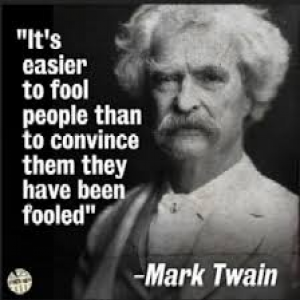Home > Retirement > Investor’s Apathy Wrecks Retirement Plans
Investor’s Apathy Wrecks Retirement Plans
 I was talking to a 5 Star rated financial advisor who is a long-term member of the Paladin Registry the other day. He described an investor who was putting his retirement plans at risk and did not seem to care. The advisor was as perplexed by this investor’s response as I was.
I was talking to a 5 Star rated financial advisor who is a long-term member of the Paladin Registry the other day. He described an investor who was putting his retirement plans at risk and did not seem to care. The advisor was as perplexed by this investor’s response as I was.
This advisor offers investors free analysis of current portfolios to introduce him and his services. In this case, his free report showed the portfolio was under-performing key performance benchmarks. And, if that wasn’t bad enough the investor was paying above market expenses and was exposed to excessive risk. This is a financial nightmare (low performance, high expenses, high risk) that can destroy dreams of a secure comfortable retirement.
What did the investor do with the advisor’s information? Absolutely nothing! He decided to stay with his current advisor who was producing the bad results. Knowing the facts, why would he stay with this advisor?
The Sales Pitch
Most investors are cynics, which helps protect them from Wall Street wolves. In this case he may not have trusted the data in the advisor’s free report. Although the investor did not communicate this, he may have thought the “free” report was part of an elaborate sales scheme to gain control of his assets. This was not true, but how was the advisor supposed to prove that? In this case, skepticism closed this investor’s mind to new information.
Changing Horses
When presented with this type of information, a lot of investors choose to do nothing because there is no proof they will be better off if they switch. However, this passivity is very damaging when there is proof on the table that the current advisor is not meeting reasonable expectations. What the investor needs is a better process for selecting a top quality advisor who can deliver competitive performance for reasonable risk and expense.
Relationship
Most investors believe they have personal relationships with their advisors. The investment of retirement assets should be based on an objective business relationship, but it is not. Unfortunately, investors do not realize advisors benefit more than they do from the personal nature of financial relationships. For example, investors are more reluctant to fire financial advisors they consider to be friends. They suffer quietly and hope things get better. Don’t you think advisors know this? In this case, the relationship insulated the advisor from bad results.
Brand Names
The last point is the impact of brand names. This person invested with an advisor from a brand name firm. It used to be that 62% of investors put their money with brand name firms because they felt safer. That number is under 20% due to the incredible number of Wall Street scams that have been documented by regulators and the media. Brand names have paid tens of billions of dollars of fines for cheating.
Conclusion
In this case, I can only surmise the investor chose to ignore the facts and stay with his current financial advisor out of misplaced loyalty. He was willing to put his retirement plans at risk to maintain a relationship with an under-performing advisor who exposed him to excessive risk and expense. He may be getting a few lunches each year, but those are the most expensive entrees he has ever eaten.
Other posts from Jack Waymire
Paladin’s Registry of Financial Advisors is a Free Service for Investors
The world’s first financial advisor directory was the Yellow Pages®. All you had to do was thumb through...
How to Find the Best Financial Advisors
Your first step is to determine the criteria you will use to identify and select the best financial...
What is an Investment Performance Benchmark?
A Benchmark is a performance goal. Your advisor is paid to produce results that beat the performance of...



